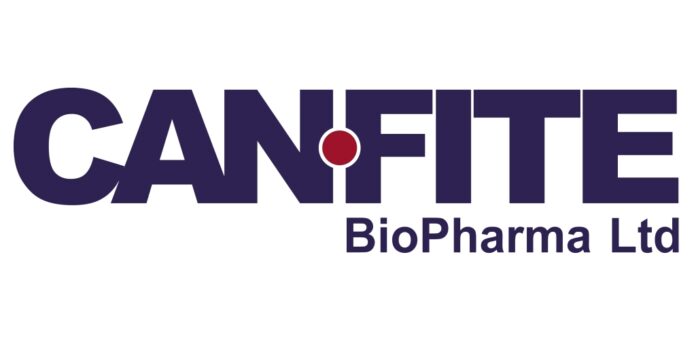PETACH TIKVA, Israel– Can-Fite BioPharma Ltd. (NYSE American: CANF) (TASE: CFBI), a biotechnology company advancing a pipeline of proprietary small molecule drugs that address inflammatory, cancer and liver diseases, today provided an update on its clinical program for Namodenoson in the treatment of hepatocellular carcinoma (HCC), the most common form of liver cancer. A pivotal Phase III registration study is open for enrollment of the most advanced liver cancer patients. At two upcoming bio-partnering conferences, Can-Fite will be presenting the latest data comparing the response of liver cancer patients to those with HCC Child-Pugh B (CPB), the most advanced liver cancer. The Company will also share the latest findings on a CPB liver cancer patient who remains cancer-free 6 years after she began treatment with Namodenoson.
Can-Fite’s prior Phase II study showed that median overall survival in the CPB7 patient population was 6.8 months for those treated with Namodenoson as compared to 4.3 months for those treated with placebo. The < 1-year survival in the whole patient population was 32% in the namodenoson treated group vs. 14% (p= 0.058) in the placebo treated patients whereas in the CPB7 population 44% survival was found in the namodenoson treated group vs. 18% in the placebo treated one (p=0.028). An article published in the peer-reviewed journal Cancers regarding Can-Fite’s Phase II study reported on the fact that CPB patients are generally excluded from clinical studies due to their poor prognosis and low expected response rate and that as of July 2020, clinicaltrials.gov listed 110 enrolling/active Phase II or III clinical studies in advanced HCC, all of which excluded CBP patients, except for only two studies in addition to Can-Fite’s.
“There is a dire need for a safe and effective treatment for patients with advanced liver disease, defined as CPB7 where Namodenoson has an advantage with its liver protective effect,” stated Can-Fite CEO Dr. Pnina Fishman “Our Phase III pivotal Namodenoson study is open for enrollment of CPB7 patients who have tried but not benefitted from other treatments on the market. We are optimistic that Namodenoson can help these patients based on the overall survival benefit already demonstrated in our Phase II study. At the upcoming bio-partnering conferences, we will be sharing extensive data that compares how the overall liver cancer population is treated, while the CPB patient population has few options and there are very few drug developers that will even allow them into their studies.”
Can-Fite has received agreement from both the U.S. Food and Drug Administration (FDA) and European Medicines Agency (EMA) on its Phase III pivotal liver cancer study which is now open for enrollment. Namodenoson has Orphan Drug status with both the FDA and EMA, as well as Fast Track Status with the FDA for the treatment of HCC. The double blind, placebo-controlled trial will enroll 450 patients diagnosed with HCC and underlying CPB7 through clinical sites worldwide. Patients will be randomized to oral treatment with either 25 mg Namodenoson or matching placebo given twice daily. The primary efficacy endpoint of the trial is overall survival. Other oncology trial efficacy outcomes, such as tumor radiographic response rates and median progression-free survival, as well as standard safety parameters, will be assessed.
An interim analysis will be conducted by an Independent Data Monitoring Committee (IDMC) after 50% of enrolled patients are treated. Namodenoson will be evaluated as a 2nd or 3rd line treatment for CPB7 patients in whom other approved therapies have not been or are no longer effective.
According to the American Cancer Society, liver cancer accounts for more than 700,000 deaths globally each year. HCC is commonly aggressive with poor survival rates. As new drugs that effectively and safely treat HCC are developed and approved, the market for HCC treatments is estimated by Delveinsight to reach $3.8 billion by 2027 for the G8 countries.


